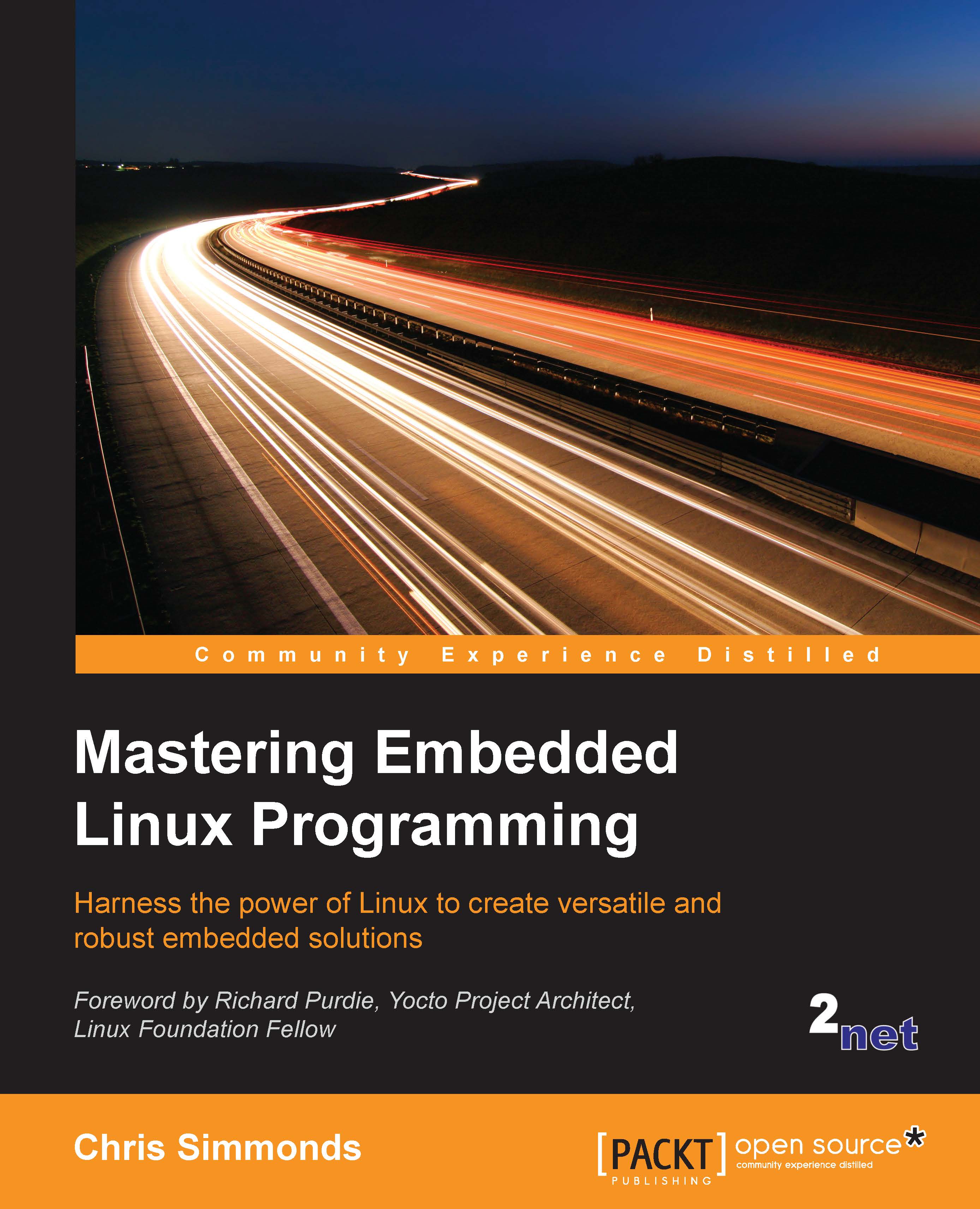Avoiding page faults in a real-time application
A page fault occurs when an application reads or writes memory that is not committed to physical memory. It is impossible (or very hard) to predict when a page fault will happen so they are another source of non-determinism in computers.
Fortunately, there is a function that allows you to commit all memory for a process and lock it down so that it cannot cause a page fault. It is mlockall(2). These are its two flags:
MCL_CURRENT: locks all pages currently mappedMCL_FUTURE: locks pages that are mapped in later
You usually call mlockall(2) during the start up of the application with both flags set to lock all current and future memory mappings.
Tip
Note that MCL_FUTURE is not magic in that there will still be non-deterministic delay when allocating or freeing heap memory using malloc()/free() or mmap(). Such operations are best done at start up and not in the main control loops.
Memory allocated on the stack is trickier because it is done automatically...

































































